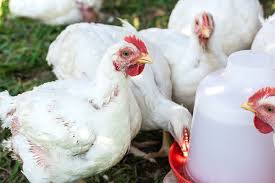
Catherine Murombedzi – Health Correspondent
A recent study conducted by Zuhura L. Kimera, Peter Shimo, Emmanuel C. Balandya, Mecky I. N. Matee, and Lisa V. Adams in nine districts in Tanzania has uncovered a disturbing trend in the country’s animal production industry.
Researchers found that antiretroviral (ARV) drugs, typically used to treat HIV, are being misused in the production of domestic pigs and broiler chickens. This practice poses risks to human health and has significant environmental implications.
The study screened samples for three first-line ARVs (lamivudine, nevirapine, and efavirenz) in animal muscle, blood, and feed. The results were alarming: 66.8% of samples tested positive for lamivudine residues.
The highest concentration of lamivudine was found in domestic pig blood and muscle (7.58 mg/kg).
The misuse of ARVs in animal production raises concerns about human health risks. ARV residues in animal products can negatively impact human health, particularly for those consuming meat or animal by-products. Furthermore, the use of droppings as manure presents environmental risks, including the potential contamination of soil and water.
The illicit use of ARVs can also lead to drug resistance. Poor adherence to HIV treatment regimens may contribute to the emergence of drug-resistant strains of the virus in humans.
The study’s findings are a call to action. They highlight the need for a total ban on ARV use in animal husbandry. The study urges prohibiting the use of human-designated ARVs in animal production. It also calls for comprehensive studies and monitoring to fully understand the scope of this issue and develop effective solutions.
The One Health Approach emphasizes the interconnectedness of human, animal, and environmental health, underscoring the importance of addressing this issue holistically.

To address this issue, the following recommendations are made.
Education and Awareness:
- Educating farmers and the public about the risks of ARV misuse in animal production
- Regulatory Framework: Establishing guidelines and regulations for ARV use in animal production
- Monitoring and Enforcement
- Regular monitoring and enforcement of ARV use in animal production.
In conclusion, the study said the misuse of ARVs in animal production in Tanzania requires immediate attention from the government, regulatory agencies, and industry stakeholders.
By working together, this will protect public health and promote sustainable agricultural practices. This includes ensuring the safety of the food supply and addressing the potential environmental implications of ARV misuse.
Feedback: [email protected]
